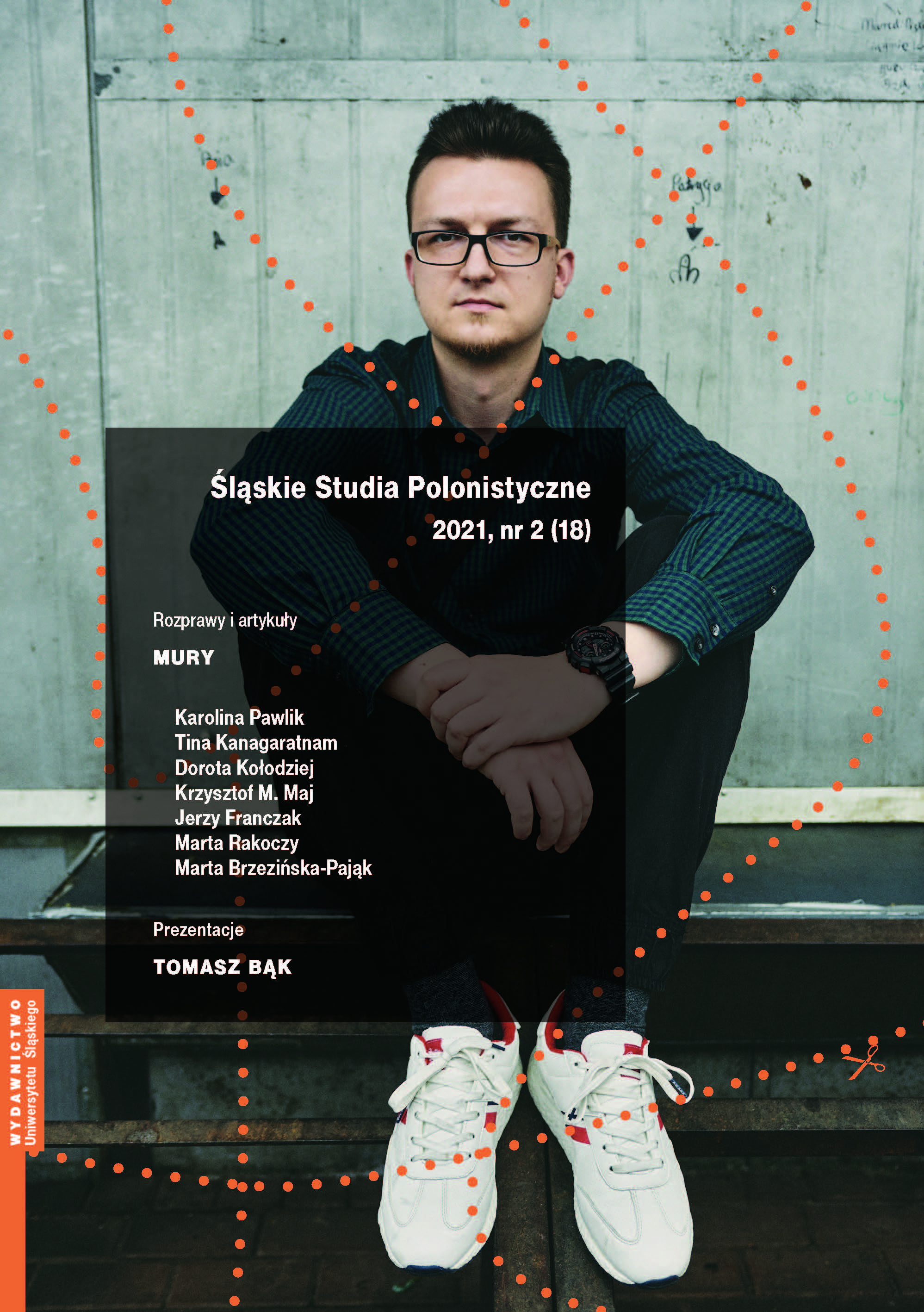„Językami mówić będę”. Détournement i sequelizacja albo język(i) poetycki(e) Tomasza Bąka
“Speaking in Tongues”: Détournement and Sequelization, or Tomasz Bąk’s Poetic Language(s)
Author(s): Oskar MellerSubject(s): Psychology, Theoretical Linguistics, Applied Linguistics, Polish Literature, Philology, Theory of Literature, Identity of Collectives
Published by: Wydawnictwo Uniwersytetu Śląskiego
Keywords: détournement; sequel; echolalia; collective; schizoanalysis; Tomasz Bąk; poetic language
Summary/Abstract: In critical overviews of recent Polish poetry, Tomasz Bąk, the author of Bailout, is mentioned among the last decade’s most important debutants. Scholars include Bąk’s project in their ongoing debate over the forms of poetic involvement, but they often ignore an important aspect of his poetry, one that relates to languages. This aspect can be regarded as consisting of at least two levels. Oskar Meller examines the mechanisms of “speaking in tongues” in Bąk’s books of poetry following his debut. The first level of this poet’s work in languages stems from his use of the Debordian détournement, thanks to which the poet “captures” foreign registers, the languages of the media, of social discourses, and of neoliberał economics. The second level concerns sequelization, manifested in a number of ways: the mining of tradition, the spoofing of formulas, repeating other poets’ phrases, and finally inventing his own idioms. This echolalia of diction is present in the construction of the subject called the “schizophrenic collective”, which testifies to the extremely consistent synchronicity of Bąk’s entire project.
Journal: Śląskie Studia Polonistyczne
- Issue Year: 2021
- Issue No: 2 (18)
- Page Range: 1-26
- Page Count: 26
- Language: Polish

